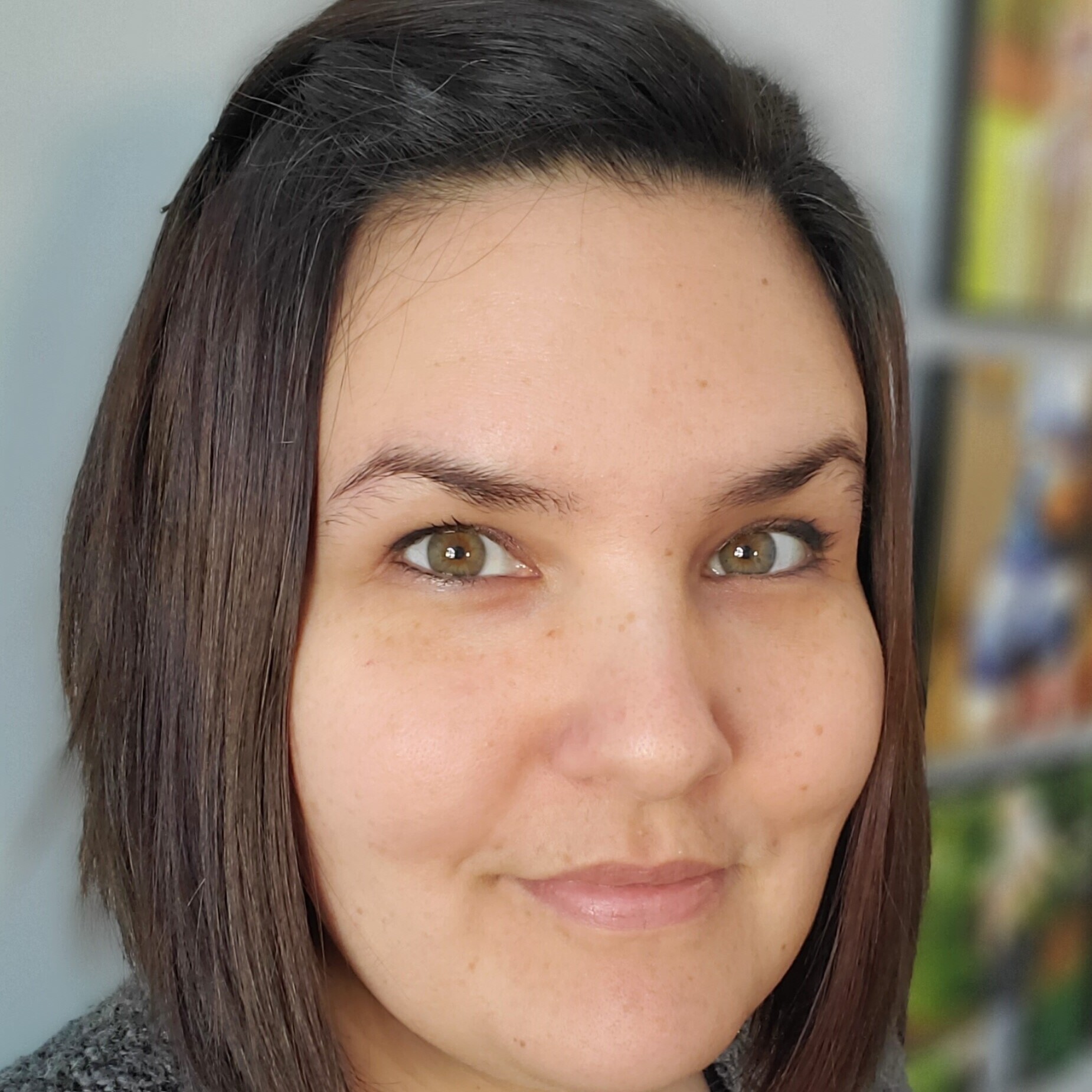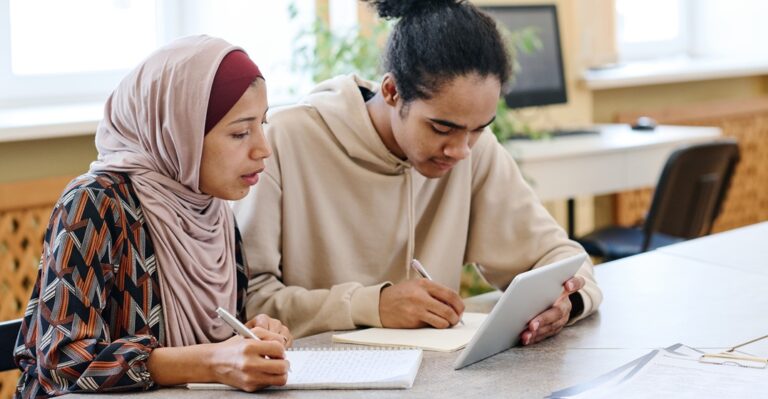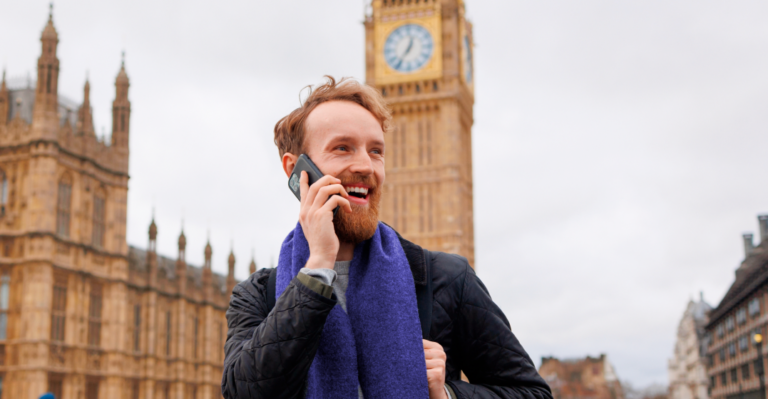Updated on October 7, 2024

17 ways to say “You’re welcome”

If you’re currently learning English, you’ve probably realized that there are lots of ways to say the same thing. For example, have you ever thanked an English speaker for doing something nice or helpful? You might have noticed that they don’t always respond with “You’re welcome.”
While that may be the traditional answer when someone says “Thank you,” it’s definitely not the only one. Depending on the situation and the person you’re talking to, another response might work just as well—or even better. The situation is similar to using English idioms so that you could talk like a native speaker.
Below, we’ll discuss some different ways to say “You’re welcome” and give you examples of when and how to use them.
Oh, BTW: It’s always “You’re welcome,” and never “Your welcome,” despite what you might see written on social media!
- No problem/Not a problem
- Anytime
- Don’t worry about it/No worries
- It was nothing
- Don’t mention it
- Of course
- You bet
- Anything for you
- Happy to help
- You got it
- You are very welcome
- Not at all
- Pleased to be of assistance
- The pleasure is all mine
- I’m sure you’d do the same for me
- It was the least I could do
- Thank you

Learn English with Lingoda
How it works

The first seven responses on our list are all appropriate in an informal context, such as thanking a friend, co-worker or a barista at a local coffee shop.
Informal ways
Let’s start with the informal ways to say “You’re welcome” – those we use with friends, for example, in a casual conversation.
1. No problem/Not a problem
This super-casual alternative to “You’re welcome” conveys that your helpful actions weren’t an inconvenience at all. If you want to get really informal, you can even throw in a “No prob!”
How to use it
Speaker 1: “Thanks for driving me home today. I really appreciate it.”
Speaker 2: “No prob! It was on my way.”
2. Anytime
Want someone to feel comfortable asking you for more favors in the future? Then respond with “Anytime”—meaning you’ll help them whenever they need it.
How to use it
Speaker 1: “Thanks again for watching my kids while I was at my appointment.”
Speaker 2: “Anytime! I know it’s hard to find childcare.”
3. Don’t worry about it/No worries!
This response is very similar to “No problem.” It expresses that the person thanking you hasn’t caused you any trouble and shouldn’t give it a second thought.
How to use it
Speaker 1: “Thank you for lending us your tent for camping last weekend.”
Speaker 2: “No worries! We weren’t using it.”
4. It was nothing
Telling someone, “It was nothing” is another casual way to express that your actions were insignificant and not a big deal.
How to use it
Speaker 1: “You really helped me out by bringing the appetizers to the party—thanks so much!”
Speaker 2: “It was nothing!”
5. Don’t mention it
This response expresses the idea that your actions were so insignificant that you don’t even need to be thanked. In other words, whatever good deed you did doesn’t need to be mentioned at all.
How to use it
Speaker 1: “Thanks for the cookies! Oatmeal raisin is my favorite.”
Speaker 2: “Don’t mention it.”
6. Of course
Typically, you’d say “Of course” in response to a yes/no question, but it’s used a little differently here. What this basically means is “Of course you’re welcome to my help.”
How to use it
Speaker 1: “I’m so grateful for the wonderful reference letter you wrote for my college application.”
Speaker 2: “Of course! I meant every word.”
7. You bet
The expression “You bet” is sometimes used as a positive response to a request; it’s similar to saying “Sure.” But you can also say it in response to a thank you; it’s kind of similar to saying “No problem.”
How to use it
Speaker 1: “Thanks for sending me those great photos of the wedding; I can’t believe I didn’t take any.”
Speaker 2: “You bet!”
Now that you know what to say instead of “You’re welcome” in an informal setting, here are some different ways to say it in more formal situations, such as in an important business meeting with clients you’ve just met or in a professional email.
8. Anything for you
You can use this expression to reassure someone that you prioritize their needs or objectives above your own and that you’re willing to do whatever it takes to help them achieve their goals or overcome obstacles.
How to use it
Speaker 1: “Thanks for covering my shift. I really had a problem to attend to and there was no way I could do it.”
Speaker 2: “That’s really not a problem. Anything for you.”
9. Happy to help
This phrase expresses genuine pleasure and willingness to assist someone.
When you say “Happy to help,” you’re letting the other person know that you genuinely enjoyed being able to offer your support or assistance.
How to use it
Speaker 1: “Thanks for staying late to help me finish the project. I really appreciate it.”
Speaker 2: “Happy to help! I’m glad we were able to get it done together.”
10. You got it
While its logic might not be immediately clear, “You got it” essentially means that the speaker is affirming their readiness to provide assistance whenever needed. It’s an expression to use with people you consider friends.
You can use this phrase in various situations when agreeing to do something for someone.
How to use it
Speaker 1: “Could you pick up some snacks for the party tonight?”
Speaker 2: “Sure thing. You got it.”
Formal ways to say “you’re welcome”
You should avoid using overly familiar expressions when speaking with your boss and coworkers in a professional setting, as it might come across as too informal or even rude.
So, here are the more formal expressions to use in such cases.

Learn English with Lingoda
How it works

11. You’re very/quite/truly welcome
These variations of “You’re welcome” add a touch of sincerity and politeness to your response. They convey a sense of genuine appreciation for the gratitude expressed by the other person. While these phrases can be used in formal settings to express heartfelt gratitude, they are also suitable for more casual interactions.
How to use it:
Speaker 1: “Thanks for helping me finish the project on time.”
Speaker 2: “You’re very welcome. I’m glad I could lend a hand.”
12. Not at all
This expression is similar to “It was nothing” or “Don’t mention it,” but carries a slightly more formal or polite tone. “Not at all” is frequently used in the UK and its neighboring regions and less common in North America.
How to use it:
Speaker 1: “I appreciate you taking the time to explain the process to me.”
Speaker 2: “Not at all. I’m happy to help clarify any questions you have.”
13. Pleased to be of assistance
This expression is quite a formal way to say “You’re welcome,” but it really just means “Happy to help.” Make sure you’re not using this in everyday situations (e.g., if someone thanks you for holding the door open for them). You might get some funny looks.
How to use it
Speaker 1: “Thank you for your quick service delivering the sofa I purchased.”
Speaker 2: “Pleased to be of assistance.”
14. The pleasure is all mine
If you respond to someone with this expression, you’re more or less saying that it’s you who should be thanking them, as you got more enjoyment out of the situation than they did.
How to use it
Speaker 1: “Thanks so much for agreeing to have dinner with me. I had a fantastic time!”
Speaker 2: “The pleasure is all mine.”
Ways to show mutual appreciation
Here are also some other ways to respond to “Thank you” by acknowledging gratitude while also expressing a sense of reciprocity or mutual understanding.
15. I’m sure you’d do the same for me
While this has a slightly more casual tone than some of the others on this list, it’s still on the formal side. You’re telling the person thanking you that you know they would also help you if you needed it.
How to use it
Speaker 1: “Thanks again for helping me move. It went so much faster with two people.”
Speaker 2: “I’m sure you’d do the same for me.”
16. It was the least I could do
The expression “It was the least I could do” means that your actions were very small; you did the bare minimum to help the person. This is often said out of politeness and isn’t always an accurate description of a person’s actions.
How to use it
Speaker 1: “I just received the grocery delivery you ordered for me. I really appreciate it.”
Speaker 2: “After everything you’ve been through, it was the least I could do.”
17. Thank you
Wondering why a “Thank you” is on this list? Well, this expression is used when you want to respond to someone’s thanks with one of your own. For example, if you think you benefited from a situation just as much as—or more than—they did. Intonation is important here: Make sure to emphasize “you.”
How to use it
Speaker 1: “Thank you for taking the time to have a Zoom chat with me. I like to speak to all of our applicants face to face before making any hiring decisions.”
Speaker 2: “Thank you for the opportunity!”
Mix it up with different ways to say “You’re welcome”
Feel thankful that we’ve given you some other ways to say “You’re welcome”? Don’t mention it!
Next time someone thanks you for doing them a big or small favor, try one of the responses above. You’ll sound like a native English speaker in no time.
FAQs
Here are some of the most frequently asked questions about vocabulary used to say “You’re welcome” in everyday situations.
How do you professionally say “You’re welcome” to a native speaker?
To professionally say “You’re welcome” to a native speaker, opt for polite phrases such as “You’re very welcome” or “It was my pleasure,” which imply a formal tone. These expressions offer a polite way to respond in such instances.
How do you come across as a generous person in English?
A generous person often expresses willingness to help others without hesitation or expectation of return favors. Their language may include phrases like “Happy to help” or “Anything for you.”
How do you say ”thanks” with body language in an informal setting?
In an informal context, saying “thanks” with body language can involve gestures like a smile, a nod of the head, or a thumbs-up sign. These non-verbal cues convey appreciation in a casual and friendly manner.
Summing up: 17 ways to say “You’re welcome”
Whether among family members or in professional settings, acknowledging gratitude politely is essential.
By exploring these 17 alternatives and synonyms, individuals can elevate beyond the common phrase, enriching interactions with genuine politeness and warmth.

Learn English with Lingoda
How it works














